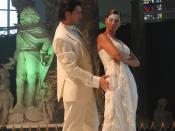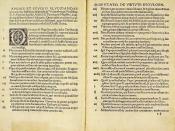Nuns, Wives, and Mothers: Women and the Reformation in Germany
Before the Protestant Reformation there were major restrictions to the social and political status of women. However, the Reformation caused a large change. Women were actually allowed to read the bible (before it had been banned by Henry VII in England) and even study it. They began preaching, it was especially, however, encouraged by the Catholic Church. They felt that women preaching in the home could convert the husbands back to their faith. In some areas they were allowed to work their own guild, they were previously only allowed to take up the practice that was of their husbands. If their husbands died, they were allowed to run it for a little while longer, but then they'd get remarried and they'd take on the guild of their new husband.
After the Reformation, many of the nuns and sisters married.
Even during the Reformation they'd be married to Reformers, not to mention afterwards. In some areas they were encouraged to return to convents. However, in majority, they left the convents and married.
They felt that the wife should not be the one to preach to her husband. They were encouraged to not marry outside of the Protestant Church for fear that they might be influenced by their husband. However, men were on the other hand, so they might lead women (their wives) into the church, into the right. A lot of the time, it was the women who were expected to care for the family while their husbands (who were preachers) would be gone teaching. Sometimes a household would jump from ten people to eighty, and the wives would have to care for the whole household.
Women's lives, I believe were greatly improved after the Reformation. They had more freedom,



Amazing how life changes
It is amazing at how the world for women has expanded to today. They have tons more rights now and a sense of equality. It seems at times that women might be held back at different job positions, but a perserverence on the woman will pay off. Nice practice essay.
6 out of 6 people found this comment useful.